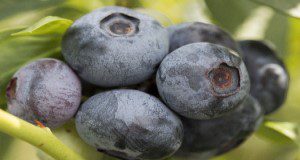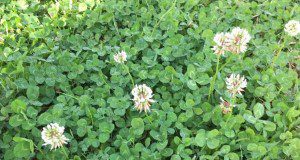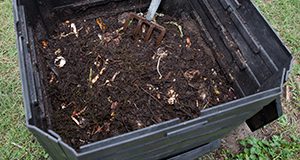There is a growing market in the United States and globally for fresh fruits and vegetables with reported health-enhancing properties. This includes blueberries, which are high in antioxidants and have been reported to improve heart health and contain anticancer properties. Fresh-market blueberry sales (conventional and organic) increased by 27% between 2013 and 2017, and that trend is expected to continue. In addition, there is an increasing level of consumer interest in organically grown produce (for environmental conservation, taste, and other perceived benefits), for which some consumers are willing to pay a premium over the price for a conventionally produced crop. This new 8-page publication of the UF/IFAS Horticultural Sciences Department discusses various aspects of organic blueberry production in Florida and is intended for use by those currently using or interested in pursuing organic production. Written by Douglas A. Phillips, Peter J. Dittmar, Philip F. Harmon, Oscar E. Liburd, Danielle D. Treadwell, and Jeffrey G. Williamson.
https://edis.ifas.ufl.edu/hs1400
Tag: Peter Dittmar
Weeds as Reservoirs of Plant Pathogens Affecting Economically Important Crops
Weeds are a major contributor to yield loss and reduction in yield quality in an agricultural setting, competing with the crop for resources like light, water, and nutrients. This competition, along with the cost of weed management strategies like tillage and herbicides, is responsible for the economic impact of weeds, which can reach into the billions. Weeds can also harm crop plants by acting as reservoirs for destructive plant pathogens, the insect vectors that move these pathogens from plant to plant, or both. This new 7-page publication of the UF/IFAS Horticultural Sciences Department, written by Morgan Byron, Danielle Treadwell, and Peter Dittmar, summarizes previously published weed-pathogen associations to help growers scout and monitor pathogens in weeds near production areas.
https://edis.ifas.ufl.edu/hs1335
Herbicide Residues in Manure, Compost, or Hay
When purchasing compost, it is important to understand that some manure-based products can contain herbicide residues that can affect the growth of certain plants. Manure from animals that have been fed forage treated with aminopyralid or other closely related herbicides, such as clopyralid or picloram, can be contaminated with these herbicides, which severely restrict the growth of legume and solanaceous crops and other broadleaf plants. This 3-page fact sheet discusses aminopyralid, compost, questions to ask when purchasing bulk compost or mulch, conducting a bioassay, aminopyralid injury symptoms, and steps to consider if contaminated manure or compost has been added to a garden or field site. Written by Jason Ferrell, Peter Dittmar, and Brent Sellers, and published by the UF Agronomy Department, May 2017.
http://edis.ifas.ufl.edu/ag416


